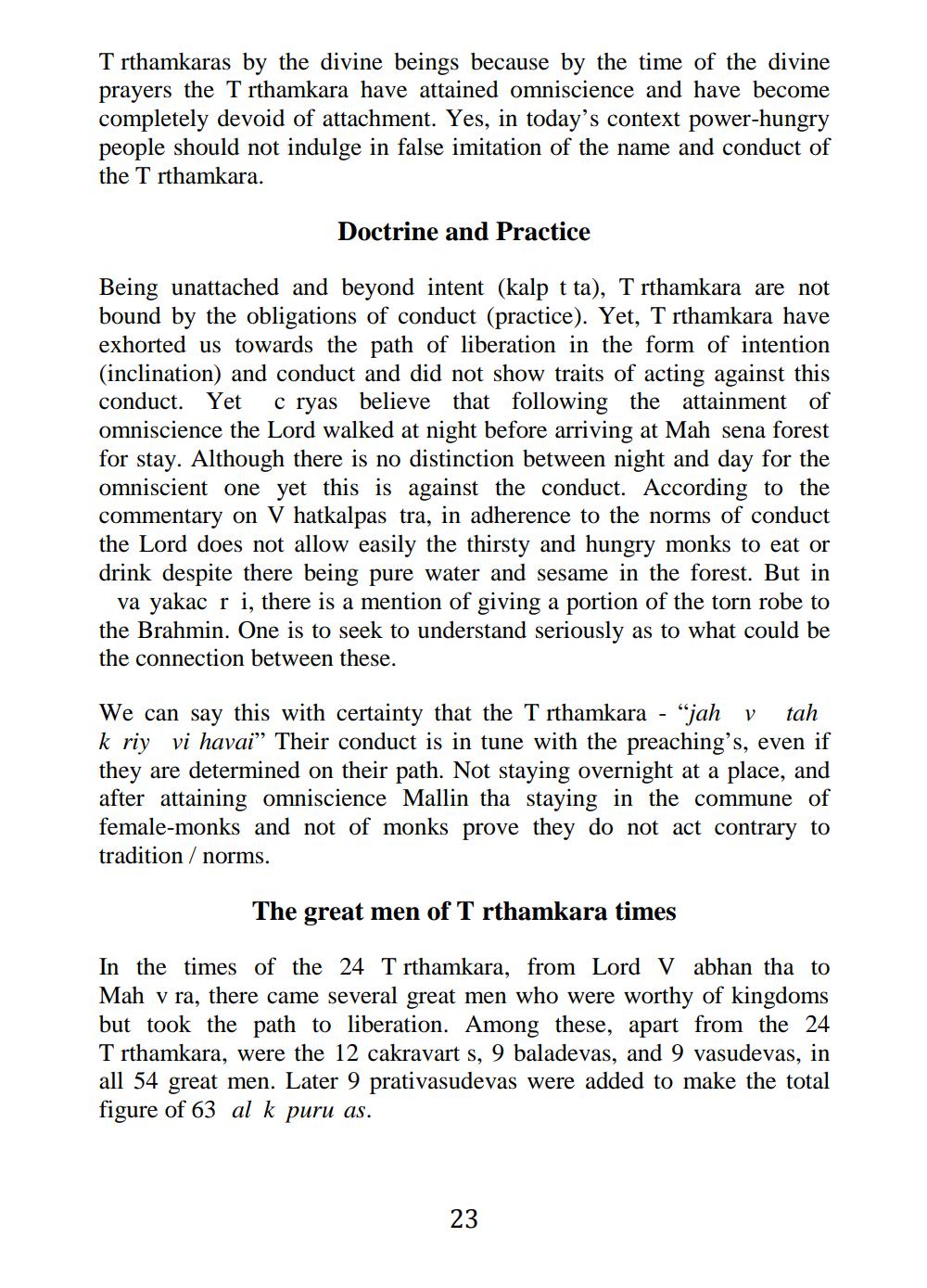________________
T rthamkaras by the divine beings because by the time of the divine prayers the T rthamkara have attained omniscience and have become completely devoid of attachment. Yes, in today's context power-hungry people should not indulge in false imitation of the name and conduct of the T rthamkara.
Doctrine and Practice
Being unattached and beyond intent (kalp t ta), T rthamkara are not bound by the obligations of conduct (practice). Yet, T rthamkara have exhorted us towards the path of liberation in the form of intention (inclination) and conduct and did not show traits of acting against this conduct. Yet c ryas believe that following the attainment of omniscience the Lord walked at night before arriving at Mah sena forest for stay. Although there is no distinction between night and day for the omniscient one yet this is against the conduct. According to the commentary on V hatkalpas tra, in adherence to the norms of conduct the Lord does not allow easily the thirsty and hungry monks to eat or drink despite there being pure water and sesame in the forest. But in
va yakac r i, there is a mention of giving a portion of the torn robe to the Brahmin. One is to seek to understand seriously as to what could be the connection between these.
We can say this with certainty that the T rthamkara - "jah v tah k riy vi havai” Their conduct is in tune with the preaching's, even if they are determined on their path. Not staying overnight at a place, and after attaining omniscience Mallin tha staying in the commune of female-monks and not of monks prove they do not act contrary to tradition / norms.
The great men of T rthamkara times
In the times of the 24 T rthamkara, from Lord V abhan tha to Mah v ra, there came several great men who were worthy of kingdoms but took the path to liberation. Among these, apart from the 24 T rthamkara, were the 12 cakravart s, 9 baladevas, and 9 vasudevas, in all 54 great men. Later 9 prativasudevas were added to make the total figure of 63 al k puru as.
23




